From June 19 to June 21, more than 400 heads of international organizations, experts, and scholars from IGF, ICANN, Microsoft, Internal Affairs and Communications, ISOC Foundation, Scientific Cyber Security participated in the European Dialogue on Internet Governance (Euro DIG) held at the University of Tampere in Finland. Distinguished Professors Wu Fei and Fang Xingdong and Prof. Zhong Bu of Hong Kong Baptist University were invited to attend the meeting.
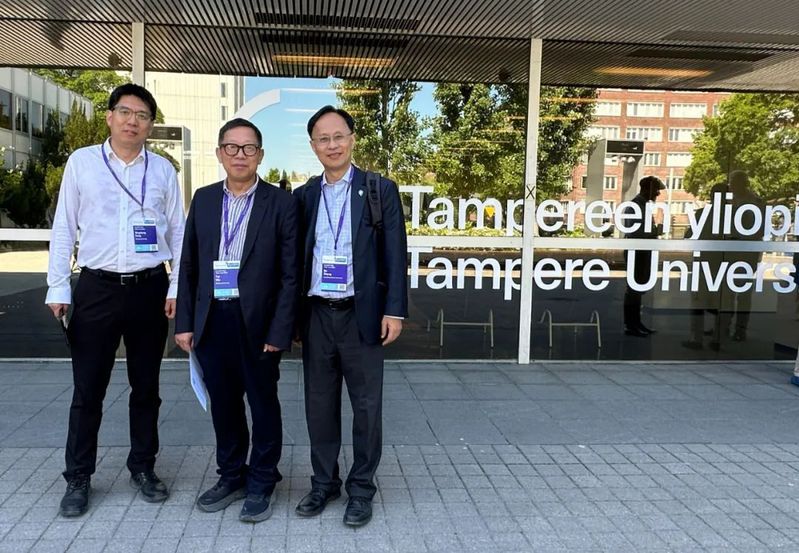
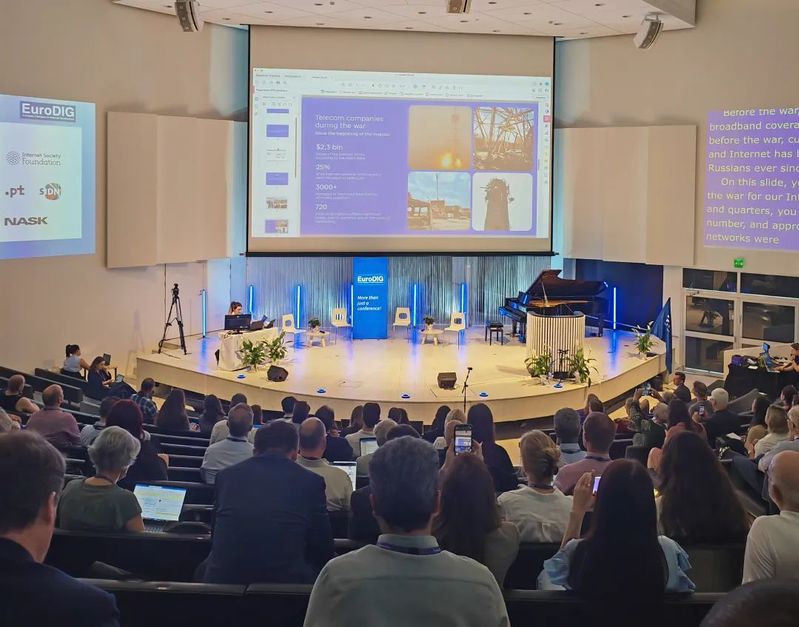
Euro DIG is known as the condensed version of the United Nations Internet Governance Forum (IGF). Participating experts from all over the world conducted extensive and in-depth discussions on many topics such as the global digital contract, global AI governance, Internet fragmentation, and the Russia-Ukraine conflict.
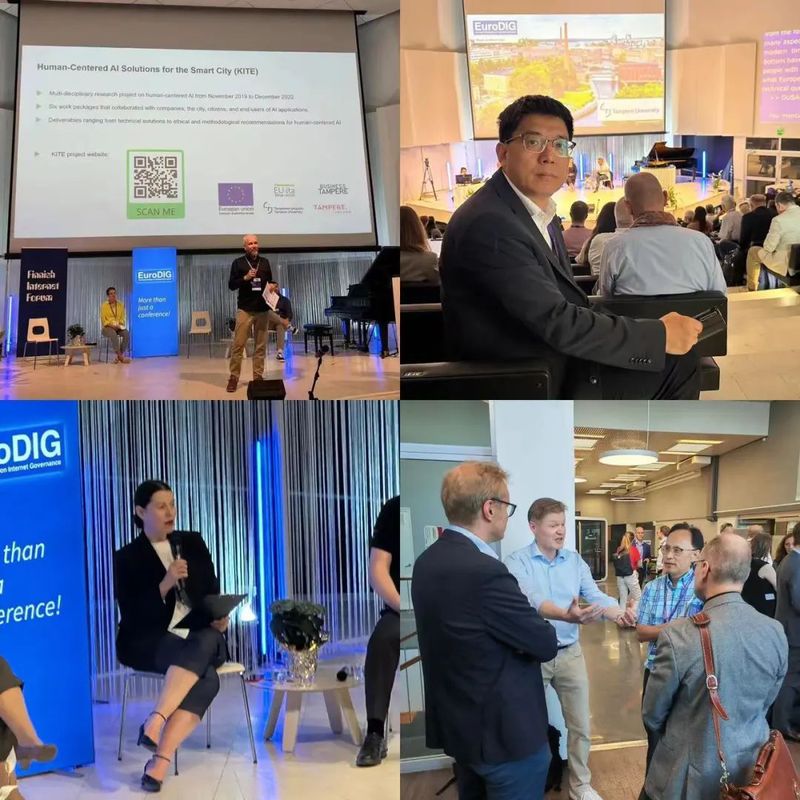
As part of the agenda of the European Dialogue on Internet Governance (EuroDIG), at the China-Eu Digital Trust workshop jointly organized by the Institute of Digital Civilization at Wu Zhen and the International Communication Research Center of Zhejiang University, Professor Fang Xingdong, President of Institute of Digital Civilization at Wu Zhen, Professor Wu Fei and Professor Zhong Bu, chief experts of Institute of Digital Civilization at Wu Zhen, respectively delivered keynote speeches on three topics: China-Eu digital mutual trust, digital convergence and global digital mutual trust, which attracted experts from all countries to participate in the discussion.
Professor Wolfgang Kleinwaechter of Aarhus University, Denmark, who participated in the workshop, emphasized the importance of collaboration and cooperation in speech, arguing that digital mutual trust requires collaboration between countries, businesses and individuals. Protecting digital infrastructure, data, and privacy is essential to foster mutual trust. Continuous technological innovation and the development of common standards play an important role in building digital mutual trust. Giacomo Mazzone of Italy's Rai for the Next Generation EU proposed that institutions such as the Italian public broadcaster Rai should actively embrace digital transformation in order to adapt to the changing media environment and interact with their audiences through digital platforms. Waltraut Ritter of Knowledge Dialogue in Germany expressed the hope that Chinese experts, scholars and people from all walks of life will actively participate in IGF meetings and activities.
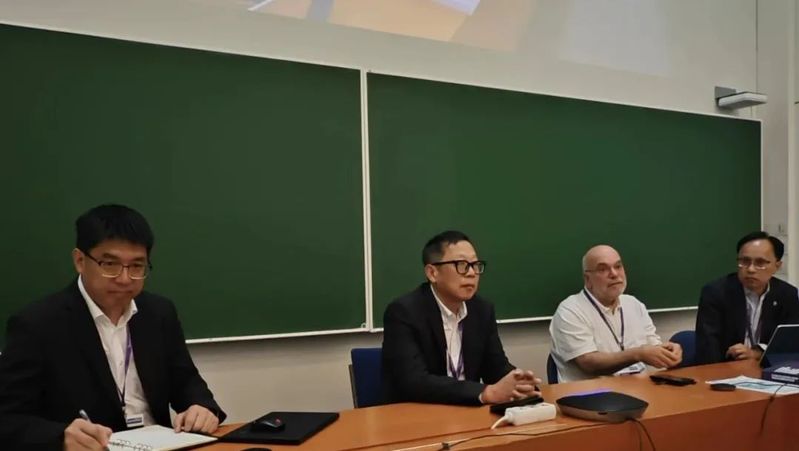
At the workshop, Prof. Fang Xingdong said that without digital mutual trust, there would be no digital era. With the development of digital technology, the world is more and more closely connected, and the issue of digital mutual trust between countries has become increasingly prominent.Today, digital mutual trust between China and the EU faces the choice between closed and open paths.It is necessary for China and the EU to step out of the gap and establish a multi-level system of effective communication, which is a prerequisite for understanding and mutual trust.
Prof. Wu Fei put forward his own views on digital commonality. He believes that with the deepening of globalization, digital commonality provides an infrastructure guarantee for the exchange, interconnection and mutual learning of information, ideas, knowledge and culture, so that various paths of modernization exploration can be revealed together, and provides a realistic and imaginative space for sharing, resonance and common dialogue to create a better and prosperous future for mankind. Thus, it provides a broader conceptual basis and endogenous impetus for promoting the construction of a community with a shared future for mankind.
Prof. Zhong Bu called on researchers from academia to provide rational and objective perspectives on strengthening global digital trust. To achieve this goal, Chinese researchers should strengthen and enhance dialogue, trust and cooperation with European academics, think tanks, businesses and governments.
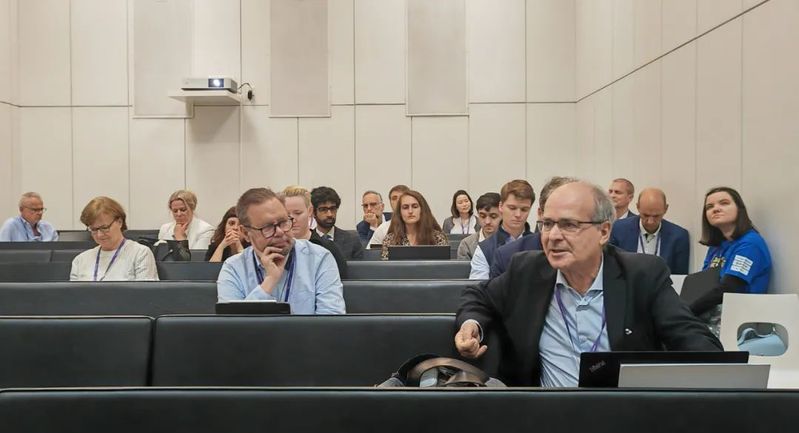
The full text of the three professors' speeches:
Fang Xingdong: The Road Choices Faced by China and Europe in Digital Mutual Trust
Without digital trust, there would be no digital age. Today, the problem of digital trust between major powers is beginning to emerge, differing only in severity, including between Europe and the United States. As digital technologies connect the world more and more closely, the issue of digital trust between countries has become increasingly prominent. The problem of digital trust itself is objective and real, and it will become more serious.
How to solve the problem of digital trust, we are faced with two choices, different choices will bring completely different outcomes:
One is passive defense, which responds in a more closed way by isolating, decoupling, de-risking, etc. This approach seems feasible in the short term, but in fact, it cannot solve the problem, and it is not in line with the long-term trend of The Times.
The other way is to face up to the problem, actively defend, and establish effective technical solutions and institutional systems for trust and security on the premise of maintaining non-discrimination, fair competition and openness.
Only the latter can achieve global connectivity in the digital age and achieve a win-win situation.Today, digital mutual trust between China and the EU faces the choice between closed and open paths. The multi-stakeholder mechanism should play an active role, stand in the perspective of human digital civilization, and actively promote the path of openness based on the long-term benefit of all people. It is time for China and the EU to step out of the gap and establish a multi-level and effective communication system, which is a prerequisite for understanding and mutual trust. That is why we hold this meeting today. Through GDPR, the Digital Market Act, and the Artificial Intelligence Act, Europe has established itself as a leader in institutional innovation in the digital age. I believe that Europe can also make a unique contribution to global digital trust.
Wu Fei: Digital commonality is achieved through digital mutual trust
The history of human civilization is a history of connectivity and interaction, and digital mutual trust is the basis of effective connectivity. It can speed up the transmission of information, improve the accuracy and reliability of information, and facilitate people's daily life. For example, online payment and transfer can be realized through Internet banking, real-time communication and information sharing can be realized through social media, and online shopping can be realized through e-commerce platforms. Han Bingzhe was concerned that digital total network and total communication did not make it easier for people to meet others, but instead sought to find the same and like-minded people, which led to the narrowing of our experience. It made us fall into an endless self-cycle, and eventually led us to brainwashing by self-imagination. Although his concern is worthy of attention, it is not the whole truth, because digital commons is not a tone, a theater showing a repertoire, but a symphony of multiple voices, a world that is updated every day. Any finite existence is always connected with other finite existences, and comes to the presence in the continuous co-manifestation. Digital commons is countless beams of light that shine on each other in the shared pool of diversity. The standpoint of individual citizens resonates with that of community members, which carries and reflects the commonality of society. What digital commons emphasizes is the connection of existence, the coexistence and co-display of each other, and the existence of this co-display itself means the attitude of transcending uniqueness and refusing identity; that is to say, commonness is not the same without difference. This idea is an extension of traditional Chinese philosophical thoughts. For example, Lao Tzu puts being above existence, attaches importance to variability and difference, and opposes identity and essence. Chinese Zen always stands in the present, stands in the transient, subtle and ordinary world to perceive that piece of cloud, that slight rhythm, that beam of light and that unique voice, and emphasizes the search for wisdom in clearing and nethering. The interconnection of digital commons is reflected in the amazement when different subjects and cultures meet. The amazement of this blend and co-display will promote the reflection between subjects, realize some self-evident truths and unthinkable points in their own culture, and construct reciprocal understanding in the reciprocal communication, thus leading to a broader horizon of understanding.
The sharing pool mechanism of digital commons provides a guarantee for the rational thinking and emotional blending of multiple participating subjects. (1) The independent thoughts of each subject can exist, spread and be critically corrected by multiple values; (2) each subject can learn the methods of rational discussion by referring to the thoughts of others and in the corresponding response; (3)this is conducive to their ability to improve the rational dialogue in the dialogue of criticism, comparison and criticism. Although neither emotional empathy nor ideological resonance means that consensus can be reached, this interactive relationship strengthens the connectivity between the public and is conducive to the construction of a community with a shared future for mankind. With the deepening of globalization, the transnational flow of knowledge, information, capital, technology, personnel and materials has become a basic fact, and all countries, nations and regions are in a state of interdependence, which is the reality of the community with a shared future for mankind. Digital commons provides infrastructure for the exchange, communication and mutual learning of information, ideas, knowledge and culture, enables the common display of various paths of modernization exploration, and provides a realistic and imaginative dialogue space for sharing, resonance and commonality to create a better and prosperous future for mankind, thus providing a broader ideological basis and internal driving force for the building of a community with a shared future for mankind.
Zhong Bu: The importance of enhancing digital trust
We should avoid politically motivated practices such as decoupling or de-risking that foster isolation and impede development and progress.
The China-Germany Report on Digital Trust highlights the importance of digital trust and the risks it entails. At present, there is a significant asymmetric relationship between China and Germany in terms of digital interpenetration, and China is far more dependent on Germany than Germany is on China. For example, SAP dominates the ERP market in China, and Siemens also has a large market share in PLM software systems and industrial automation equipment in China.
In the face of new risks and challenges in the digital age, we can only adopt an open and active defense. Through more comprehensive communication and cooperation, the establishment of a new technological and institutional system can effectively eliminate and reduce potential risks and hidden dangers, and will not stop further strengthening cooperation and development. We should stand on the height of the common development of mankind, be more rational, objective and pragmatic, and take the lead in establishing an effective digital mutual trust mechanism among countries in the world. It is of extraordinary significance to set an example for broader digital mutual trust in the world.
Researchers from academia should provide rational and objective perspectives on strengthening global digital trust. To achieve this goal, Chinese researchers should enhance dialogue, trust and cooperation with European academics, think tanks, businesses and government.
Digital trust requires international cooperation and multilateral governance mechanisms. Cooperative initiatives, agreements and frameworks at the regional and global levels can promote trust building and information sharing to work together to address common challenges and risks.

